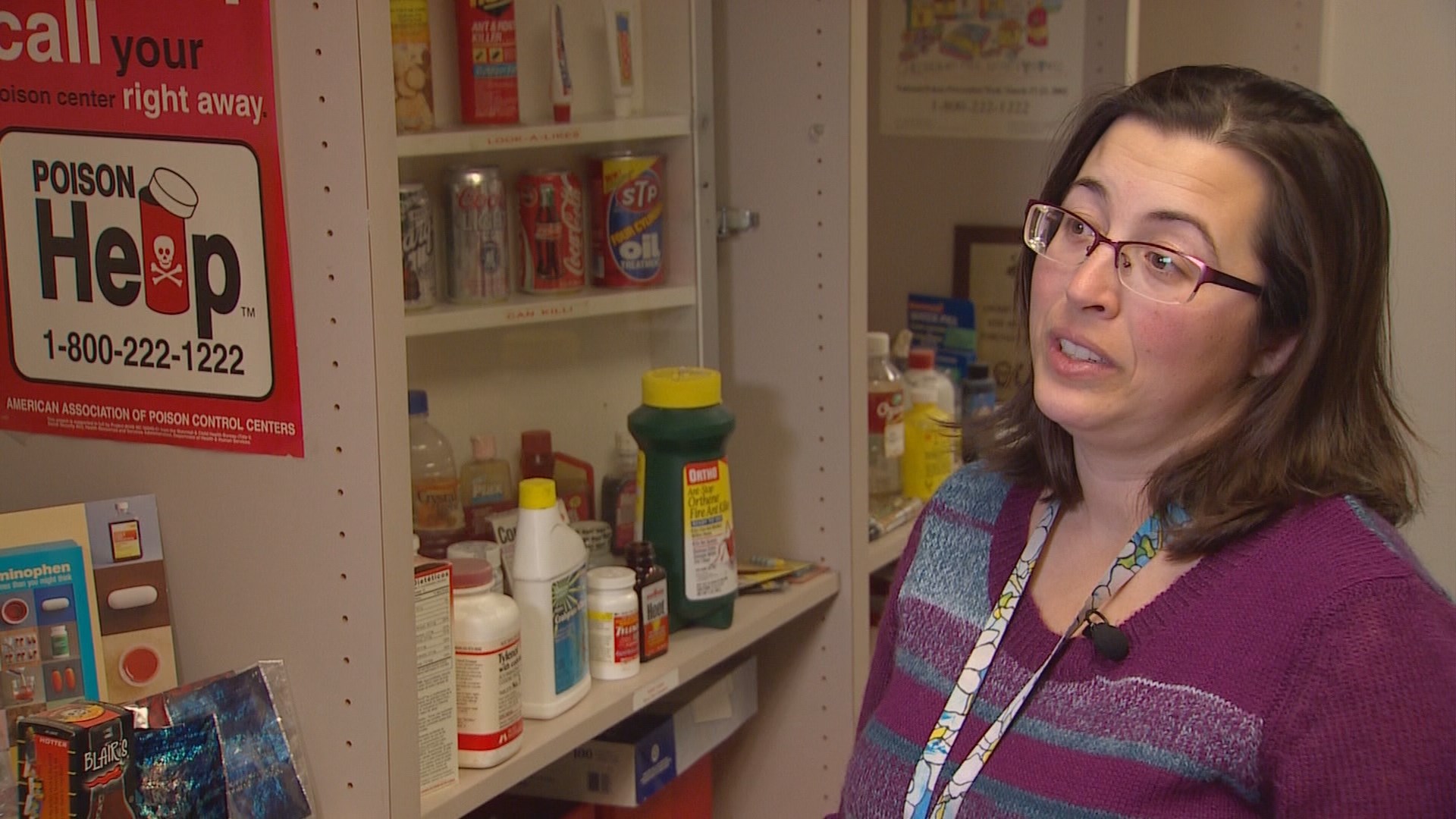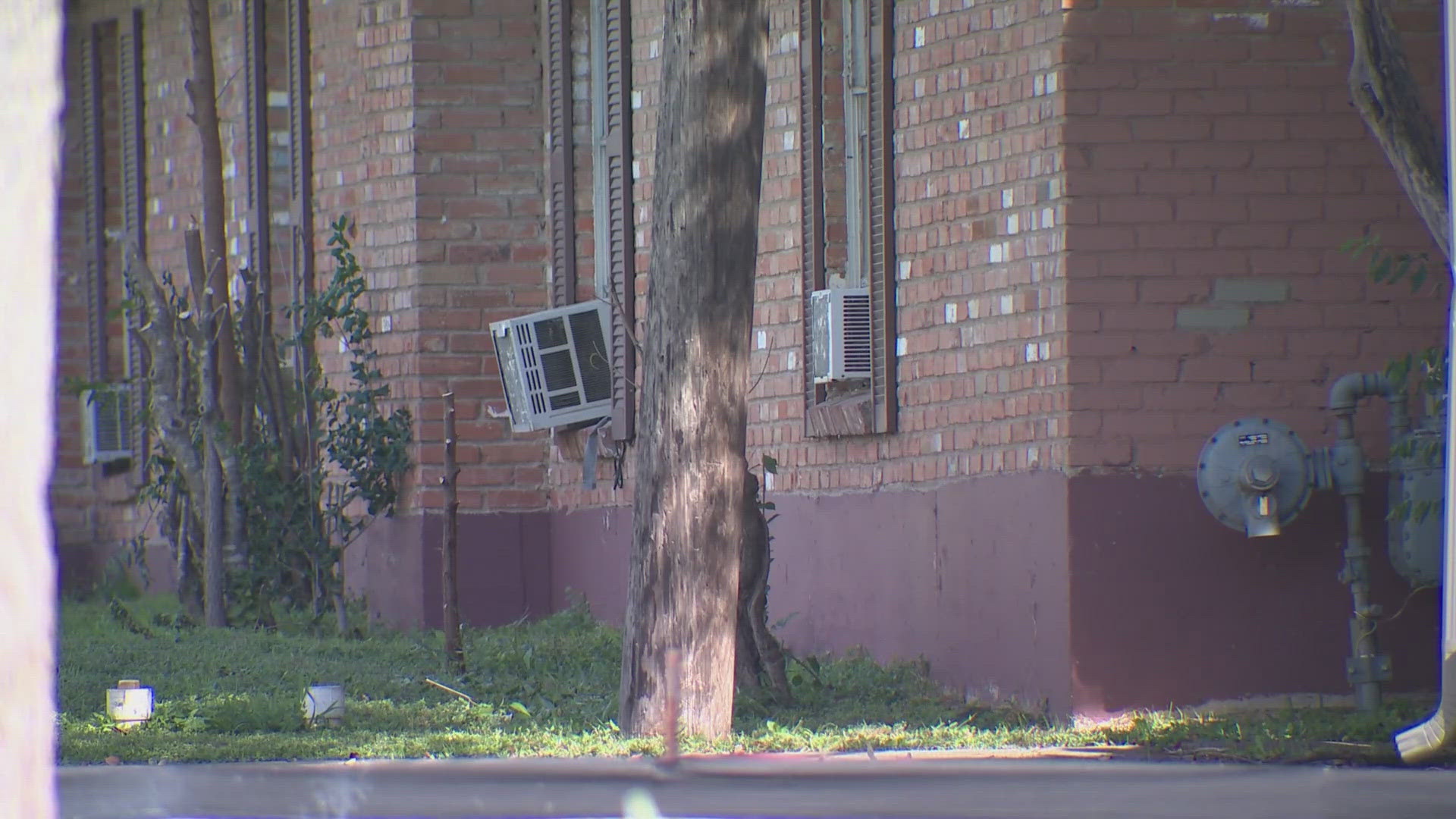DALLAS – It's becoming an all-too-routine sight in downtown Dallas: An ambulance and police responding to yet another suspected K2 overdose, often in the city's busy West End.
Sometimes, those overdosing on the drug take off their clothes or walk right in front of train cars. They mumble incoherently, shouting and sometimes being becoming confrontational. Or they may have seizures, vomit, or lose consciousness.
"We're dealing with about 15 or 20 cases per week," said DART Police Chief James Spiller.
Dallas Fire-Rescue officials have recorded 192 calls from Dec. 1 to Jan. 7. Fire officials are no longer providing up-to-date numbers, but based on the fact that authorities are responding to several K2 overdose calls a day, the numbers are now well over 200.
Many of the calls are during rush hour heading to into the evening, at or near a DART stations. There were several calls Friday, including one man taken to the hospital Friday morning. Dealing with the epidemic is taxing the resources of DART, Dallas police, and Dallas Fire-Rescue, who are on the front lines of responding to the crisis.
"There seems to be just almost multitudes of users of K2 in the downtown area," said one Dallas police officer. "After they take this K2/synthetic marijuana-type stuff, they tend to disrobe. They become very incoherent, walking around mumbling and shouting and being quite confrontational and even aggressive."
A number of Dallas police officers spoke to News 8, but each spoke on the condition their identity be withheld.
K2 is cheap and popular. It's a blend of herbs and synthetic drugs that are supposed to mimic the effects of marijuana. But as they're seeing in downtown, it doesn't always work out that way.
"Quality control with K2 doesn't really exist," said Ashley Haynes, a toxicologist with the North Texas Poison Control Center at Parkland Memorial Hospital. "The people that are making this are not taking their samples to be tested, and they don't label the amount that's in there. So when you're purchasing this from a dealer or the internet, you don't necessarily know what you're getting."
Typically what happens is, manufacturers of the drug will take plant material and then spray it with the synthetic drug. There can be vast differences in potency — even within the same batch.
"The dealers and the synthesizers of the chemicals are always radically changing their structures to try to evade detection, so we never really know what you're getting," Haynes said. "We can't predict what your effects are going to be. You could get really sick on what you think is going to be a safe dose."
Police sources say the drug is popular among the homeless downtown, because it is so cheap. They think the homeless are serving as a conduit for drug buys.
"The homeless people, they're the facilitators," said Dallas police official with knowledge of the situation.
In other words, the homeless person sets up the drug buy in exchange for a portion the drug. Many of those overdosing downtown are from the city's homeless population.
The official also said others use synthetic marijuana because they can take the drug, get high, and it won't show up on drug tests.
Often, police dispatch traffic is Spartan — usually one or two sentences saying that officers are being sent to or have arrived at yet another K2 call in downtown Dallas.
"It looks like he's on K2," said a Dallas police officer during a Jan. 17 call. "It's the same area."
"I thought it might be one of those K2 guys," another officer said on a call the next day.
And so it goes. Over and over. Call after call, taxing the resources of first responders downtown.
DART's chief says authorities are taking it very seriously.
"There's some places — without getting into too much detail — because there are some active investigations that are going on as a result of what we're seeing and where we think it's coming from," Spiller said.
He said his department is working hand-in-hand with Dallas police and its narcotics division.
Another Dallas police official said authorities have made significant inroads in to identifying not just the users, but also the sellers of K2 in the downtown area.
Still, there's growing fears that someone going to end up dead before it's all over with.
"We can't protect against everything, but I'd hate to see someone lose their life over a drug of this type," Spiller said.
In September, the state banned more than 1,000 chemicals compounds to help make it easier to prosecute K2 crimes. But it's often still an uphill battle, because manufacturers are constantly manufacturing new chemical compounds.
And police officials say they often have to release those arrested for K2 possession until lab tests can be performed to determine if it contains an illegal synthetic drug, making it all the more difficult for police trying to do their jobs.


